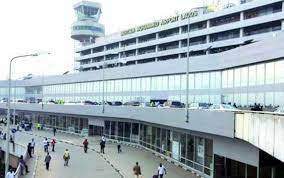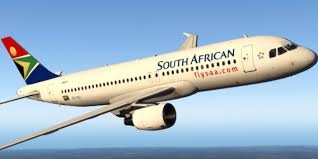Nigeria carrier, Air Peace has collaborated with The Boeing Company, and Cranfield University in the United Kingdom (UK) to leverage their world-class expertise, facilities and industry partnerships of both organizations to boost the carrier’s safety culture.
Working under the aegis of Boeing Global Learning Institute (BGLI) with “Advanced Leadership in Safety Excellence” as theme, the airline brought together all the executives, post holders and management leadership of the various departments of the carrier in a-five-day in-person classroom training.
The partnership between Air Peace and Boeing, Dr. Ejike Ndiulo said, was borne out of a shared commitment to shaping the future of the aviation industry.
Senior Organisational Consultant and Programme Manager, Boeing Global Learning Institute, Harry Magui, said Boeing has long recognised the importance of supporting continuous learning of our aviation partners.
To that end, the Boeing Global Learning Institute designs and delivers numerous learning programmes to both emerging and established leaders of our partners.
Magui said: “We’re here to partner with our great partner, Air Peace who (that) have (has) been phenomenal in advancing the Aviation Industry in Nigeria; so we are here to support them to harness more opportunities in the future with the Advanced Leadership in Safety Excellence Training for all its top leadership within the organization.”
Head of Aerospace, Cranfield University, Prof Graham Braithwaite, said the collaboration is targeted at addressing the challenges the carrier faces.
“This collaboration ensured that the training directly address the challenges Air Peace faces, culminating in real-world capstone projects that would have a lasting impact,” Prof Braithwaite said.
Lecturer, Organisational Resilience and Change, Cranfield School of Management, Dr. Fabian Steinmann, lauded the progress Air Peace has made over the years said the management of the School is happy to learn and share knowledge and find ways to strengthen the system, making it robust and flexible to adapt to the ever-changing environment.
“Safety is at the heart of everything we do at Cranfield so the privilege we have is that we travelled around the world, picked up the good practices, learned more about the culture and the operation in various countries so we’re here to facilitate that exchange with Nigeria and Air Peace to see how we share some of the good practices and lessons learned from all around the world and translate them into their operation,” Dr Steinmann said.
The programme’s curriculum was carefully crafted to blend theoretical insights with hands-on practical applications. In the first phase, discussions led by Prof. Braithwaite and Dr. Steinmann set the stage by aligning Air Peace leadership’s operational insights with the program’s objectives.
Phase two provided participants with direct access to experts from Cranfield University and Boeing, equipping them with advanced tools and strategies for safety leadership. Beyond the classroom, participants were empowered to implement their learnings within their teams, creating a ripple effect that would strengthen safety systems across the organization.
“This class is quite essential and we’re lucky to have our resource persons impact knowledge on us. It is a well-structured training and especially for Air Peace because of where we are now and where we hope to go in the future. The whole essence of this class is to reinforce what we know before and be exposed to other avenues of learning. The aviation industry is ever-changing and dynamic, and Air Peace has to be abreast of such developments,” Safety Manager at Air Peace, Capt Godfrey Ogbogu, said.
He said commitment to safety and operational excellence of the airline has never been more evident, adding that the partnership has not only cultivated a deeper understanding of safety leadership but also laid the groundwork for a more resilient, accountable, and innovative workforce, poised to tackle the evolving challenges of the aviation industry.





